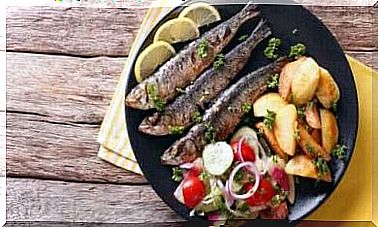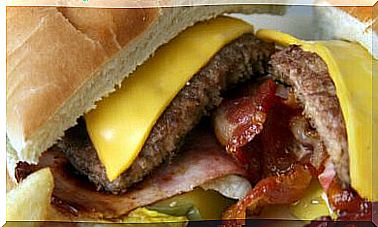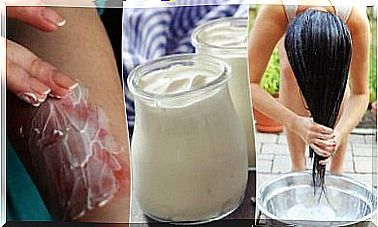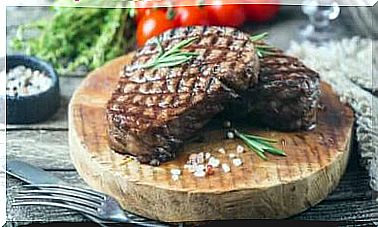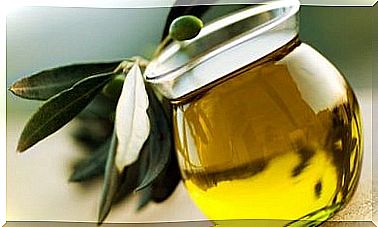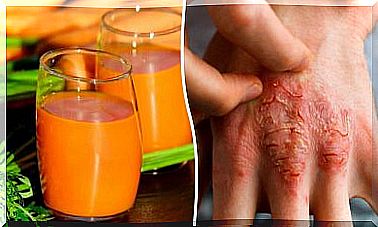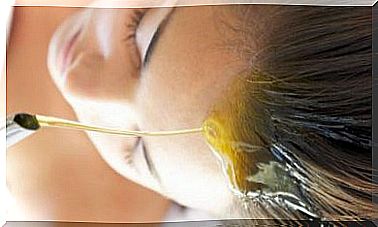Gastroesophageal Reflux Disease: Symptoms And Treatment
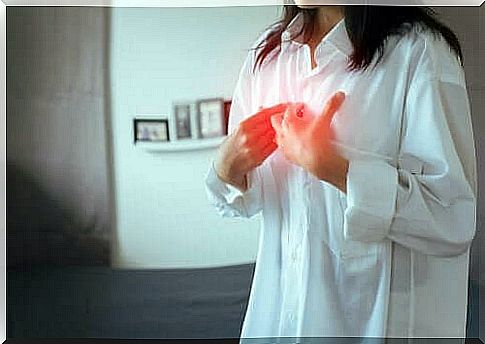
Gastroesophageal reflux is the spontaneous passage of gastric contents into the esophagus without cause. Physiological gastroesophageal reflux is primarily due to the transient and spontaneous relaxation of the lower esophageal sphincter due to flatulence.
This condition affects the quality of life of people who suffer from this disorder. However, for it to be considered a disease, the symptoms must be sufficiently significant in terms of presence or intensity.
Therefore, gastro-oesophageal reflux disease is generally a chronic pathological process, but has a good prognosis. In addition, symptoms vary in intensity and there may be intermittent periods of remission.
What causes gastro-oesophageal reflux
The appearance of gastroesophageal reflux disease depends on many factors. The most important of these, however, is the failure of the lower esophageal sphincter. In addition, factors contributing to gastroesophageal reflux include changes in the following areas:
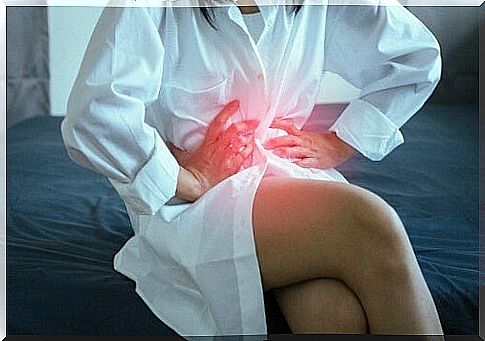
- Esophageal mobility.
- Upper esophageal sphincter.
- Esophageal cleansing mechanisms and stomach contents.
In many cases, a sliding hiatal hernia is also associated with gastro-oesophageal reflux disease. This is because a hiatal hernia promotes reflux.
Symptoms
Gastroesophageal reflux disease has many different symptoms. It can manifest itself only in the presence of oesophageal symptoms, but there may also be coexistence of oesophagitis of varying severity. Complications such as stricture, esophageal ulcer or Barrett’s esophagus may also occur less frequently.
Variability in symptoms depends on factors such as the duration of bouts of gastro-oesophageal reflux disease, as well as the volume and aggressiveness of the reflux content. In addition , the contact time of this material with the esophageal mucosa should be taken into account. However, the following complaints are among the most common symptoms:
- Heartburn: one of the most characteristic symptoms of acid reflux. It is a burning sensation rising up from your stomach.
- Acid regurgitation: is the second most common symptom. It consists in the spontaneous passage of gastric contents into the mouth. Certain body positions or increased pressure in the abdomen may contribute to this.
- Chest pain syndrome: pain occurs acutely or suddenly and is produced by spasms of the esophagus. It may be suspected that the source of pain is gastro-oesophageal reflux disease related to food intake rather than exercise.
- Dysphagia: This is about involuntary choking.
- Odinophagy: This is painful swallowing and is not a common symptom of gastro-oesophageal reflux disease. However, if it does appear, it may indicate the presence of esophagitis.
The typical symptoms of gastro-esophageal reflux disease have high diagnostic reliability. Thanks to their presence, it is almost certainly possible to make a diagnosis and indicate treatment without the need for additional diagnostic tests, such as endoscopy.
However, if the patient has alarm symptoms or is unresponsive to conventional treatment, upper GI endoscopy should be performed.
How esophageal reflux is treated
Treatment of gastro-oesophageal reflux disease aims to relieve symptoms and cure oesophagitis. In addition, it heals and prevents possible complications.
Treatment also includes advice on lifestyle, hygiene and diet measures, and medications. In some cases, the need for surgery is also considered.
Hygienic and dietary measures
Advice on lifestyle, hygiene and diet measures should be individual for each patient. They are determined according to the risk factors present in each case. Although, the clinical response to the changes made should also be taken into account.

In addition, it is advisable to quit smoking and limit alcohol consumption, as well as reduce body weight in overweight or obese patients. Another measure that is used is to raise the head of the bed, in clinical cases when the patient has to lie down. Additionally, it is also recommended to:
- To avoid heavy meals, it is better to eat less heavily and more often.
- Identify and avoid foods causing undesirable symptoms.
- Better manage your stress
- Do not perform extreme physical exercise.
- Allow adequate time for meals to eat calmly and unhurriedly, chewing each bite sufficiently.
Drugs for gastro-esophageal reflux disease
Drug treatment is based on inhibiting or neutralizing gastric acid secretion. Proton pump inhibitors are among the groups of drugs commonly used in the treatment of gastroesophageal reflux.
Antacids are also used to relieve heartburn effectively and quickly. In contrast , prokinetic drugs are useful when regurgitation is the dominant problem.
On the other hand, anti-acid drugs partially inhibit gastric acid secretion. They are prescribed for the treatment of gastro-esophageal reflux disease, when the esophagus is not inflamed.
Do you suffer from gastro-oesophageal reflux? As you can see, there are several factors that can cause or worsen the situation. However, several alternatives for the management and treatment of this disorder should be considered.
